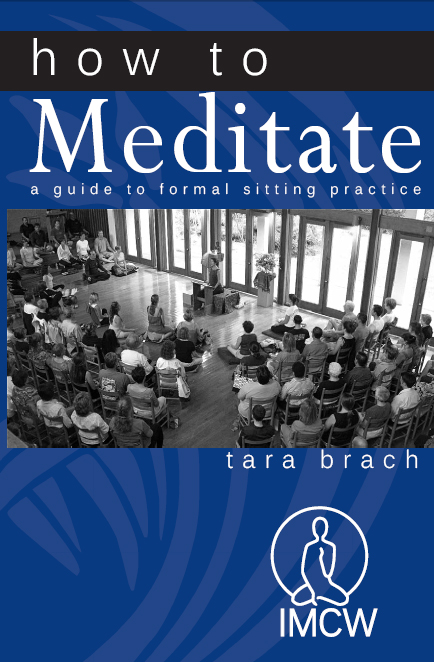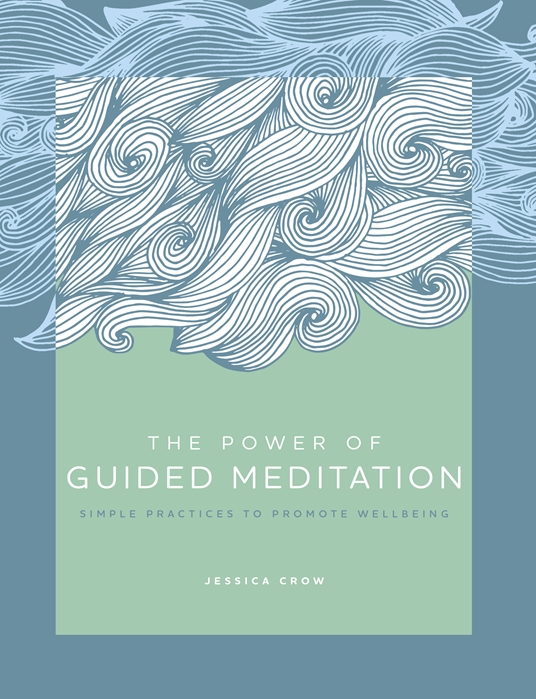In today's fast-paced world, stress and anxiety are rampant. Finding moments of peace and tranquility can feel impossible. But what if there was a simple, yet powerful technique to help you manage stress, improve focus, and enhance your overall well-being? Guided meditation offers a transformative path to inner peace. This article delves into the profound benefits of guided meditation, exploring its various techniques and how it can positively impact your mental and physical health. Discover how this accessible practice can unlock your inner strength and resilience.
Unleash Your Inner Peace: Discover the Transformative Power of Guided Meditation
What is Guided Meditation?
Guided meditation involves a trained instructor or a recording that provides verbal instructions and suggestions to help you focus your mind and achieve a meditative state. Unlike unguided meditation, which requires self-direction and often a significant amount of practice to master, guided meditation provides a structured framework. This makes it accessible to beginners and a great tool for those seeking relaxation, stress reduction, or self-discovery. The guide's voice acts as an anchor, gently steering your attention away from distracting thoughts and towards a desired state of being, whether that be calmness, focus, or self-compassion.
Benefits of Guided Meditation
The benefits of guided meditation are extensive and well-documented. Regular practice can lead to significant improvements in mental well-being, reducing symptoms of anxiety and depression. It can also enhance focus and concentration, improving cognitive function and productivity. Furthermore, guided meditation is shown to promote emotional regulation, helping individuals manage stress more effectively and cultivate a greater sense of inner peace. The practice contributes to overall physical health, lowering blood pressure and improving sleep quality. Ultimately, it facilitates a deeper connection with oneself, fostering self-awareness and personal growth.
Types of Guided Meditations
The world of guided meditation offers a vast array of techniques tailored to various needs and preferences. Some common types include mindfulness meditations, focusing on present moment awareness; visualization meditations, using imagery to achieve desired outcomes; body scan meditations, bringing awareness to physical sensations; and affirmation meditations, reinforcing positive self-talk. There are also meditations designed for specific purposes, such as sleep improvement, pain management, or overcoming phobias. The variety ensures that individuals can find a style that resonates with them and supports their personal goals.
How to Start a Guided Meditation Practice
Beginning a guided meditation practice is easier than you might think. Numerous apps and online resources offer free or paid guided meditations for various levels. Start by choosing a quiet and comfortable space where you won't be interrupted. Find a comfortable position, either sitting or lying down. Close your eyes and allow the guide's voice to lead you. Don't judge yourself if your mind wanders; gently redirect your attention back to the guided instruction. Consistency is key; aim for regular short sessions rather than infrequent long ones. Even 5-10 minutes a day can make a noticeable difference.
Finding the Right Guided Meditation for You
With the abundance of guided meditations available, choosing the right one can feel overwhelming. Consider your goals and what you hope to achieve through meditation. Are you seeking stress reduction, improved sleep, or increased self-awareness? Explore different styles and instructors to find a voice and technique that resonates with you. Pay attention to the tone and pace of the guide's voice; a calming and reassuring tone can significantly enhance the experience. Read reviews and descriptions to get a sense of the meditation's focus and content before committing to a longer session. Experimentation is key to discovering the perfect fit for your needs and preferences.
| Category | Benefits |
|---|---|
| Stress Reduction | Reduces anxiety, promotes relaxation, lowers cortisol levels |
| Improved Focus | Enhances concentration, improves cognitive function, increases productivity |
| Emotional Regulation | Develops self-awareness, strengthens emotional intelligence, manages difficult emotions |
| Physical Health | Lowers blood pressure, improves sleep quality, enhances overall well-being |
| Self-Discovery | Promotes self-acceptance, increases self-compassion, fosters personal growth |
What is the power of guided meditation?
The Power of Guided Meditation
Guided meditation harnesses the power of focused attention and intention to cultivate a state of deep relaxation and heightened self-awareness. It works by providing verbal cues, imagery, or sounds that guide your mind towards a specific state or goal. This structured approach makes it easier for beginners to access the benefits of meditation, compared to unguided practices that require more self-discipline and experience. The power of guided meditation lies in its ability to directly influence your mental and emotional state, fostering positive changes in various aspects of your well-being.
Improved Stress Management
Guided meditation is a highly effective tool for stress reduction. By focusing your attention on a guided script, you shift your focus away from anxious thoughts and worries. The relaxation response induced by guided meditation lowers cortisol levels (the stress hormone), promoting a sense of calm and tranquility. Regular practice can significantly improve your ability to cope with daily stressors and reduce the overall impact of chronic stress on your physical and mental health.
- Reduced cortisol levels: Leading to lower blood pressure and improved cardiovascular health.
- Increased relaxation response: Promotes a sense of calm and reduces feelings of anxiety and overwhelm.
- Improved emotional regulation: Helps you develop coping mechanisms for stressful situations.
Enhanced Self-Awareness
Guided meditations often incorporate elements of self-inquiry or introspection, prompting you to examine your thoughts, feelings, and sensations without judgment. This increased self-awareness is crucial for personal growth and emotional intelligence. By observing your inner landscape without getting swept away by it, you gain a deeper understanding of your patterns of thought and behavior, making it easier to identify and address areas needing improvement.
- Increased emotional intelligence: Greater understanding of your emotions and their impact on your actions.
- Improved self-compassion: Developing a kinder and more accepting attitude towards yourself.
- Greater self-acceptance: Acknowledging your strengths and weaknesses without judgment.
Improved Sleep Quality
The calming and relaxing effects of guided meditation make it an excellent aid for improving sleep quality. By calming the mind and body before bed, guided meditation helps reduce racing thoughts and anxieties that can interfere with sleep. Many guided meditations specifically designed for sleep incorporate soothing sounds and imagery to promote relaxation and deeper sleep. The consistent practice of sleep meditation can lead to longer, more restful sleep, resulting in increased energy and improved mood during the day.
- Reduced racing thoughts: Quiets the mind and promotes mental calmness before sleep.
- Relaxation of the body: Reduces muscle tension and promotes physical relaxation.
- Improved sleep cycle: Leads to longer, more restorative sleep and improved sleep quality.
Pain Management
Studies have shown that guided meditation can be an effective tool for managing chronic pain. By focusing attention on the breath or other sensory experiences, guided meditation can help shift attention away from pain sensations and reduce their perceived intensity. This distraction technique, combined with the relaxation response, can help to alleviate pain and improve overall comfort levels. It's important to note that guided meditation is not a replacement for medical treatment, but it can be a valuable complementary therapy.
- Pain reduction: Decreases the perceived intensity of chronic pain.
- Improved coping skills: Develops strategies for managing pain and discomfort.
- Reduced reliance on medication: Can potentially reduce the need for pain medication in some individuals.
Increased Focus and Concentration
The practice of guided meditation strengthens your ability to focus your attention and resist distractions. By training your mind to remain present and engaged with a specific object of focus (the guided script), you improve your attention span and concentration skills. This improved focus translates into better performance in various aspects of life, from work and studies to creative pursuits and daily tasks. Regular practice can cultivate a calmer, more focused mind, making it easier to stay on task and achieve your goals.
- Improved attention span: Increased ability to focus on tasks and resist distractions.
- Enhanced concentration: Improved ability to maintain focus and complete tasks effectively.
- Increased productivity: Better ability to manage time and accomplish goals more efficiently.
What does the Bible say about guided meditation?

What the Bible Says About Guided Meditation
What Does the Bible Say About Guided Meditation?
The Bible doesn't directly address "guided meditation" as a modern practice. The term itself is a relatively recent invention. However, the Bible does discuss practices that share similarities with aspects of guided meditation, and it also offers principles that can be used to evaluate the practice. It's crucial to understand that the Bible emphasizes a relationship with God centered on prayer, scripture reading, and worship, rather than techniques aimed at achieving altered states of consciousness. While some might argue parallels exist, a direct scriptural endorsement of guided meditation as understood today is absent.
Prayer and Contemplation
The Bible frequently encourages prayer and contemplation. These practices involve focusing the mind on God, reflecting on His word, and seeking His guidance. This bears resemblance to the focused attention aspect of some guided meditations. However, biblical prayer and contemplation are characterized by a dependence on God's Holy Spirit for illumination and guidance, rather than self-induced altered states. They are acts of worship and communion, not self-help techniques.
- Prayer as communication with God: The Bible emphasizes prayer as a two-way conversation with God, not simply a technique for mental clarity.
- Contemplation on Scripture: Meditating on scripture involves reflecting on God's word to understand its meaning and apply it to life.
- Seeking God's will: Prayer and contemplation are means of seeking God's guidance and direction in life's decisions.
Mindfulness and Spiritual Disciplines
Certain aspects of mindfulness, a component often found in guided meditation, find echoes in biblical teaching. The Bible encourages believers to be aware of their thoughts and actions, striving to live in accordance with God's will. This mindful awareness is not a technique to be mastered but a fruit of the Spirit. However, the focus is on spiritual transformation through the power of the Holy Spirit, not self-improvement through mental exercises.
- Self-examination: The Bible encourages regular self-examination to identify areas needing repentance and growth.
- Focusing on God's presence: Maintaining awareness of God's presence throughout the day is a spiritual discipline.
- Disciplining the mind: The Bible speaks about renewing the mind through the transformative power of the Gospel.
The Danger of Idolatry
Guided meditation, depending on its content and purpose, can potentially lead to spiritual pitfalls. If the focus shifts from God to self, or if the practice relies on techniques that seek altered states of consciousness without biblical grounding, it could be considered a form of idolatry, diverting attention from the true object of worship. The Bible cautions against practices that prioritize self-discovery over reliance on God.
- Prioritizing self over God: The Bible emphasizes a God-centered worldview, not a self-centered one.
- Seeking spiritual experiences apart from God: The Bible warns against relying on human techniques for spiritual enlightenment.
- False teachers and practices: The Bible cautions against following false teachers and practices that deviate from biblical truth.
Spiritual Warfare and the Mind
The Bible speaks of spiritual warfare, where believers contend with forces of darkness that seek to influence thoughts and actions. While some guided meditation techniques aim to improve mental clarity and reduce stress, the Bible suggests that true freedom from negative thought patterns comes from trusting in God's power and the Holy Spirit's guidance, rather than relying solely on human techniques.
- Renewing the mind: The Bible encourages believers to renew their minds through the transforming power of God's word.
- Casting down imaginations: Believers are instructed to cast down imaginations and every high thing that exalts itself against the knowledge of God.
- The power of prayer: Prayer is a powerful weapon in spiritual warfare, enabling believers to resist evil.
Discernment and Biblical Principles
Ultimately, when considering any practice, including guided meditation, Christians should apply biblical discernment. This means evaluating the practice based on biblical principles, seeking guidance from trusted spiritual leaders, and praying for wisdom. The ultimate goal should be spiritual growth and a deeper relationship with God, not simply achieving a temporary state of mental relaxation or self-improvement.
- Seeking counsel from trusted spiritual leaders: Discernment often requires seeking the input and guidance of mature believers.
- Examining the practice's alignment with biblical teaching: Does the practice honor God and align with scripture?
- Praying for guidance and wisdom: Seeking God's direction through prayer is essential in making wise decisions.
What kind of meditation does Tara Brach do?

Tara Brach primarily teaches and practices a form of meditation rooted in mindfulness and compassion. It's not easily categorized into a single established tradition like Vipassanā or Zen, but draws heavily from these and others. Her approach emphasizes cultivating present moment awareness, gentle self-acceptance, and the exploration of difficult emotions without judgment. This often involves incorporating elements of loving-kindness meditation (mettā), mindful self-compassion, and somatic awareness (paying attention to bodily sensations). Her style is characterized by its accessibility and integration of psychological understanding with spiritual practice. She encourages a radical acceptance of oneself, even in the face of suffering, and sees meditation as a path towards greater freedom and wholeness.
Tara Brach's Emphasis on Mindfulness
Tara Brach's meditation practice centers strongly on mindfulness, the practice of paying attention to the present moment without judgment. This involves observing thoughts, feelings, and sensations as they arise, without getting carried away by them. This non-judgmental awareness is key to her approach, allowing for a greater understanding of one's inner world. This mindfulness isn't passive observation; it's an active engagement with the present experience, fostering a deeper connection to oneself and the world.
- Non-judgmental observation: Watching thoughts and feelings without labeling them as "good" or "bad."
- Present moment awareness: Focusing on the here and now, rather than dwelling on the past or worrying about the future.
- Acceptance of experience: Acknowledging and accepting all aspects of one's inner and outer world without resistance.
Incorporating Loving-Kindness (Metta) Meditation
A significant component of Tara Brach's teachings is the practice of loving-kindness meditation (mettā). This involves cultivating feelings of compassion and kindness, first towards oneself, and then extending these feelings to others, gradually encompassing all beings. This practice helps to soften the heart, reduce feelings of isolation and separation, and foster a sense of connection and empathy.
- Self-compassion: Developing kindness and understanding towards oneself, particularly in the face of suffering.
- Extending compassion: Gradually expanding feelings of loving-kindness to loved ones, strangers, difficult people, and ultimately all beings.
- Cultivating empathy: Developing a deeper understanding and connection with the suffering of others.
The Role of Self-Compassion in Tara Brach's Meditation
Tara Brach strongly advocates for self-compassion as a crucial aspect of her meditation practice. This involves treating oneself with the same kindness, understanding, and patience that one would offer a dear friend. It's about recognizing our imperfections and vulnerabilities without self-criticism, and offering ourselves support and encouragement instead of judgment. This is especially important when facing difficult emotions or challenging life experiences.
- Acknowledging suffering: Recognizing and validating one's pain and difficult emotions.
- Offering kindness: Treating oneself with compassion and understanding, as one would a close friend.
- Mindful self-soothe: Engaging in self-soothing practices such as deep breathing or gentle touch to calm the nervous system.
Somatic Awareness in Tara Brach's Practice
Tara Brach's meditation often incorporates somatic awareness, which involves paying attention to bodily sensations. This means noticing physical feelings like tension in the shoulders, tightness in the chest, or the rhythm of one's breath. By bringing awareness to the body, we can gain a deeper understanding of our emotional and psychological states. This can help to ground us in the present moment and reduce the tendency to get lost in thought.
- Body scan meditation: Systematically bringing attention to different parts of the body to notice sensations.
- Mindful movement: Integrating body awareness into everyday activities like walking or stretching.
- Connecting mind and body: Recognizing the interplay between physical sensations and emotional states.
Integration of Psychology and Spirituality
A unique aspect of Tara Brach's approach is her seamless integration of psychological understanding with spiritual practice. She skillfully blends insights from Buddhist teachings with modern psychology, making her teachings accessible and relevant to a wide audience. This approach recognizes the importance of addressing both the spiritual and psychological dimensions of human experience, offering a holistic path to healing and transformation.
- Addressing trauma: Using meditation to process and heal from past traumas.
- Working with difficult emotions: Developing skills to manage and understand difficult emotions such as anger, fear, and grief.
- Promoting self-acceptance: Cultivating a sense of self-acceptance and self-compassion.
How effective is guided meditation?

Effectiveness of Guided Meditation
The effectiveness of guided meditation is a complex issue, with research suggesting benefits across various areas, but also highlighting limitations and the need for further investigation. Its efficacy is highly dependent on individual factors, the specific techniques used, and the practitioner's experience. While some studies show significant positive effects, others reveal less conclusive results, leading to ongoing debate about its overall effectiveness.
Impact on Stress and Anxiety
Guided meditation has shown promise in reducing stress and anxiety levels. Studies often demonstrate a decrease in cortisol (the stress hormone) levels after guided meditation sessions. This reduction can translate to improved mood, reduced feelings of overwhelm, and enhanced coping mechanisms for daily stressors. The effectiveness, however, can vary based on the individual's initial stress levels and their commitment to regular practice.
- Reduced cortisol levels: Many studies show a measurable decrease in cortisol post-meditation.
- Improved mood regulation: Participants frequently report feeling calmer and more centered.
- Enhanced coping skills: Guided meditation can equip individuals with tools to manage anxiety-provoking situations.
Effects on Sleep Quality
Insomnia and sleep disturbances are widespread problems, and guided meditation offers a potential non-pharmacological intervention. Specific guided meditations designed for sleep, often incorporating calming imagery and relaxing narratives, can improve sleep quality. However, it's important to note that the effectiveness might depend on the individual's sleep patterns and the consistency of their meditation practice. Other factors impacting sleep, such as diet and exercise, should also be considered.
- Improved sleep latency: The time it takes to fall asleep can be reduced.
- Increased sleep duration: Some studies indicate an increase in total sleep time.
- Reduced sleep disturbances: Individuals may experience fewer awakenings during the night.
Influence on Pain Management
Guided meditation, particularly mindfulness meditation, has been investigated for its potential to manage chronic pain. By focusing attention on the present moment and cultivating acceptance, individuals may experience a reduction in the perceived intensity of pain. Mindfulness meditation's ability to shift attention away from pain sensations is a key mechanism. However, it's often used as a complementary therapy rather than a standalone treatment for pain.
- Reduced pain intensity: Studies have shown a decrease in the subjective experience of pain.
- Improved pain tolerance: Individuals may be able to tolerate pain more effectively.
- Decreased reliance on pain medication: In some cases, guided meditation can reduce the need for medication.
Impact on Focus and Attention
Regular practice of guided meditation can enhance focus and attention. The act of directing attention to a specific object or sensation, as is done in many guided meditation techniques, strengthens the ability to concentrate. This can be beneficial for individuals struggling with attention deficits or seeking to improve their cognitive performance. Improvements in attention span and working memory have been reported in some studies. The effectiveness, though, is likely to be amplified by consistent and dedicated practice.
- Improved attention span: Enhanced ability to maintain focus on tasks.
- Increased working memory capacity: Better ability to hold and manipulate information in mind.
- Reduced mind-wandering: Less frequent distraction from the task at hand.
Role of Personal Factors and Guidance Quality
The effectiveness of guided meditation is significantly influenced by individual characteristics, such as personality traits, pre-existing mental health conditions, and motivation levels. The quality of the guidance itself also plays a critical role. A well-structured and expertly delivered guided meditation session is likely to yield better results than a poorly designed or poorly presented one. Individual experiences with guided meditation are highly subjective and diverse.
- Personal motivation and commitment: Regular and dedicated practice is crucial for seeing noticeable results.
- Instructor's experience and expertise: A skilled instructor can make a substantial difference in the effectiveness of the meditation.
- Individual differences in response to meditation: Not everyone experiences the same benefits from guided meditation.
Frequently Asked Questions
What is guided meditation?
Guided meditation is a mindfulness practice where a trained instructor or recording guides you through a series of exercises designed to focus your attention and encourage relaxation. It typically involves verbal instructions that help you direct your thoughts and sensations, leading to a state of deep relaxation and self-awareness. The techniques used vary but generally involve focusing on your breath, visualizing imagery, or repeating positive affirmations.
What are the benefits of guided meditation?
Guided meditation offers a wide array of benefits for both your mental and physical well-being. It can significantly reduce stress and anxiety, improve sleep quality, and boost your overall mood. Furthermore, regular practice can enhance focus and concentration, increase self-awareness, and promote emotional regulation. Studies have also shown its potential to help manage chronic pain and improve cardiovascular health.
How long does a guided meditation session last?
The duration of a guided meditation session can vary greatly depending on your needs and preferences. Sessions can range from a few minutes to over an hour. Many beginners start with shorter sessions (5-10 minutes) and gradually increase the length as they become more comfortable and experienced. There’s no right or wrong duration; the key is to find a length that fits comfortably into your schedule and allows you to fully engage in the practice.
Where can I find guided meditations?
There are many readily available resources for finding guided meditations. You can find a wide selection of free and paid guided meditations online through various apps (such as Calm, Headspace, and Insight Timer), streaming services (like YouTube and Spotify), and meditation websites. Many offer a variety of styles, lengths, and topics to suit your preferences. Additionally, you may find in-person guided meditation classes offered at local yoga studios, community centers, or wellness retreats.
 Finding Serenity: Meditation for Busy Minds
Finding Serenity: Meditation for Busy Minds Deep Breathing Practices for Ultimate Relaxation
Deep Breathing Practices for Ultimate RelaxationIf you want to know other articles similar to Discover the Power of Guided Meditation you can visit the Meditation and Relaxation category.

